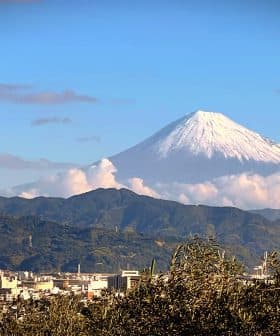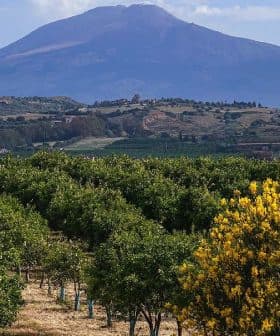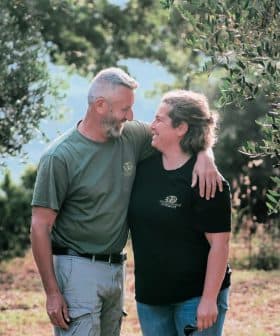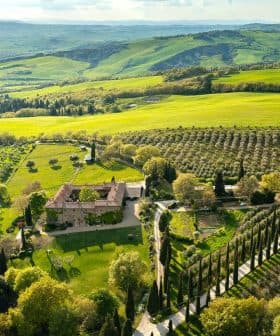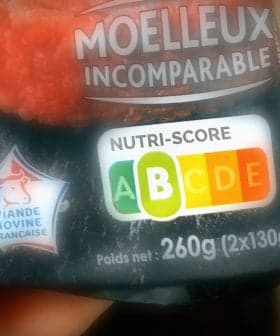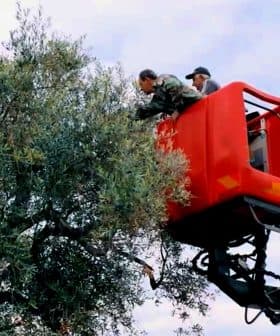Winning NYIOOC a 'Matter of Pride' for French Producers
French brands earned a record-high eight awards at the 2020 NYIOOC World Olive Oil Competition, including six Golds and two Silvers.
 Photo courtesy of Domaine Gerbaud.
Photo courtesy of Domaine Gerbaud.French olive oil producers, including Domaine Gerbaud and Château d’Estoublon, were successful at the NYIOOC World Olive Oil Competition, with Domaine Gerbaud earning a Gold award for their blend of local Provençal varieties. The success of French olive oils at the competition highlights the high quality of French olive oil on the international stage, despite challenges such as climate limitations and high production costs.
“We were jumping for joy. We knew we had a very good oil this year, but this is a wonderful reward,” Louisa Sherman, producer of Domaine Gerbaud, told Olive Oil Times.
Domaine Gerbaud’s blend of local Provençal varieties, Aglandau, Salonenque and Grossane, earned a Gold award at this year’s NYIOOC World Olive Oil Competition.
Our interest in the NYIOOC was not really a commercial one. It was kind of a matter of pride. We are very passionate about what we do.
Sherman’s was among the eight awards picked up by French producers – six Gold and two Silver – and served as a confirmation of the high quality of French olive oils on the international stage.
As a Mediterranean country, olive oil is a traditional product in most of France. But, unlike other producing countries, such as Spain, Italy or Greece, the climate only allows olive trees to grow in the south of the country.
See Also:The Best French Olive OilsThis year was the first time Domaine de Gerbaud – a small estate at the foothills of the Luberon Mountains in Provence – competed at the NYIOOC, and their success was received as a confirmation that their efforts paid off.
“This gives us a lot of confidence in the terroir and in the varieties, which can produce very good oil. French varieties are not as well-known as Spanish, Italian or Greek ones. And that’s one of the main challenges we face,” Sherman said from her house in locked-down London.
“I’m impressed about this competition. They have a brilliant website and, from the organization’s side, they do a tremendous amount of effort to get out information about the award-winning producers,” she added.
All the award winning French producers at the NYIOOC came from three Protected Designations of Origin areas – or Appellation d’Origine Protegée (AOPs) – in the region of Provence: Haute Provence, Aix en Provence and Vallée des Baux.
Domaine Salvator is a 10,000-olive-tree estate at Les Mées, a village situated at an altitude of 1,415 feet in the Haute-Provence. Their Bouteillan monovarietal won a Gold Award at the NYIOOC.
“This is a very important contest for us because we only participate in two international competitions, one in Paris and the New York one,” Frédéric Pinatel, producer of Domaine Salvator, told Olive Oil Times.
Pinatel and his cousin are the fifth generation of olive oil producers in the family and are currently in charge of the estate.
“Last year we won a Silver Award and we asked ourselves so many questions. What can we do to improve our oil? What could we change? We tried to reset the things that we thought were negatively affecting our oil. We did a list and tried to improve every item of it. Maybe that effort has worked,” Pinatel said.
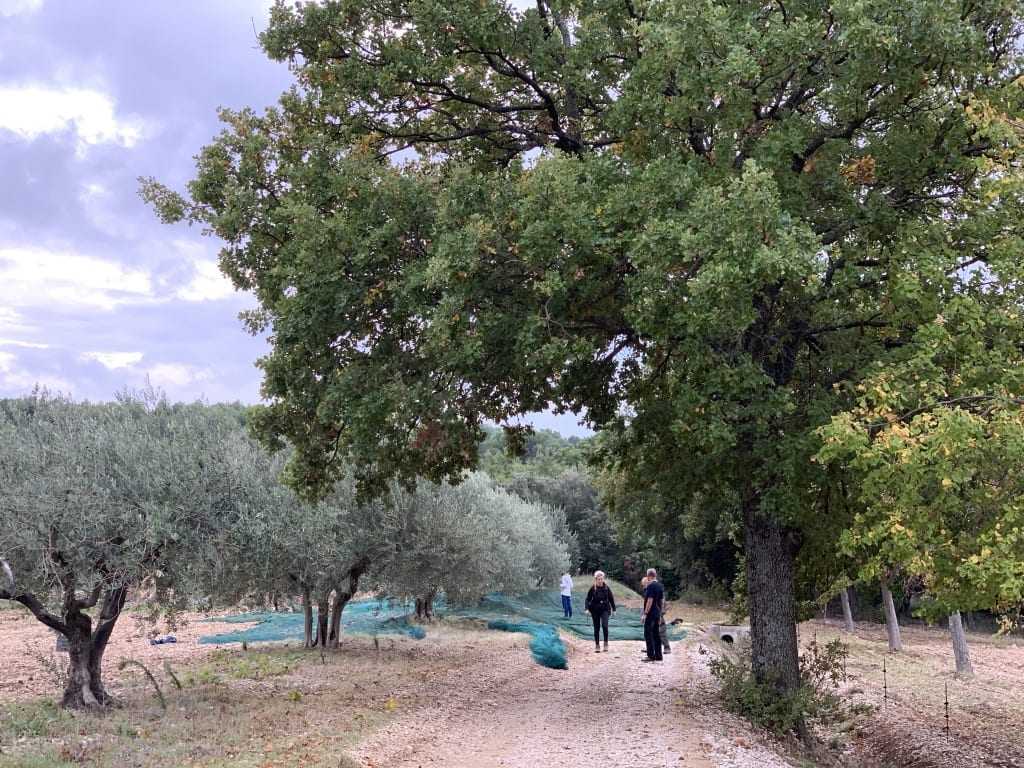
A similar situation faced Château d’Estoublon, a producer at the Vallée des Baux. While they did not win any award in 2019, in 2020, they received three Gold Awards and one Silver Award.
“We are extremely happy. It’s been a bit weird as, due to the coronavirus, it has not been possible for the whole team to celebrate the award together,” Enzo Berbeche, general manager of Château d’Estoublon, told Olive Oil Times.
“We were really mad for not winning in 2019, so, during one year, we have tried to improve some aspects of our work,” he continued. “We produce five cultivars (Picholine, Grossane, Bouteillon, Salonenque and Bberuguette) and we did the best blend that we can possibly do. Also, we reduced, to maximum extent, the time between harvesting the olives and pressing them, so we are sure that the fruits are fresh.”
“Our interest in the NYIOOC was not really a commercial one. It was kind of a matter of pride,” Berbeche added. “We are very passionate about what we do. We work seven days a week, and not receiving an award for your passion is hard. Maybe we are a bit competitive.”
In the 2019/20 crop year, France produced 5.9 tons of olive oil, a slightly higher amount than the 5.5 tons in 2018/19, according to the International Olive Oil Council.
Although far from the figures of its neighbors in terms of production, France is currently the sixth-largest producer of olive oil in Europe, after Spain, Italy, Greece, Portugal and Cyprus. And the country’s producers are making an effort to have a constant presence at international competitions.
“I would say that French olive oil is underrated,” Sherman said. “Italy, Spain, Greece have done such good work disseminating their message. In France, it’s just a small amount of production that gets to the international markets. Maybe it’s partly because of that.”
Pinatel also remarked that the high costs of production are one of the main challenges for olive oil producers in France, a country where small producers predominate over large estates.
“French olive oil sector has been changing one for the last 10 to 20 years,” he said. “Currently, it is very challenging. Quality has improved a lot in many countries and my personal vision is that, in France, if you don’t have a really good product, it won’t be sold.”
“Competitiveness is pushing everyone up,” Berbeche agreed. “You have to constantly improve and reassess things.”



